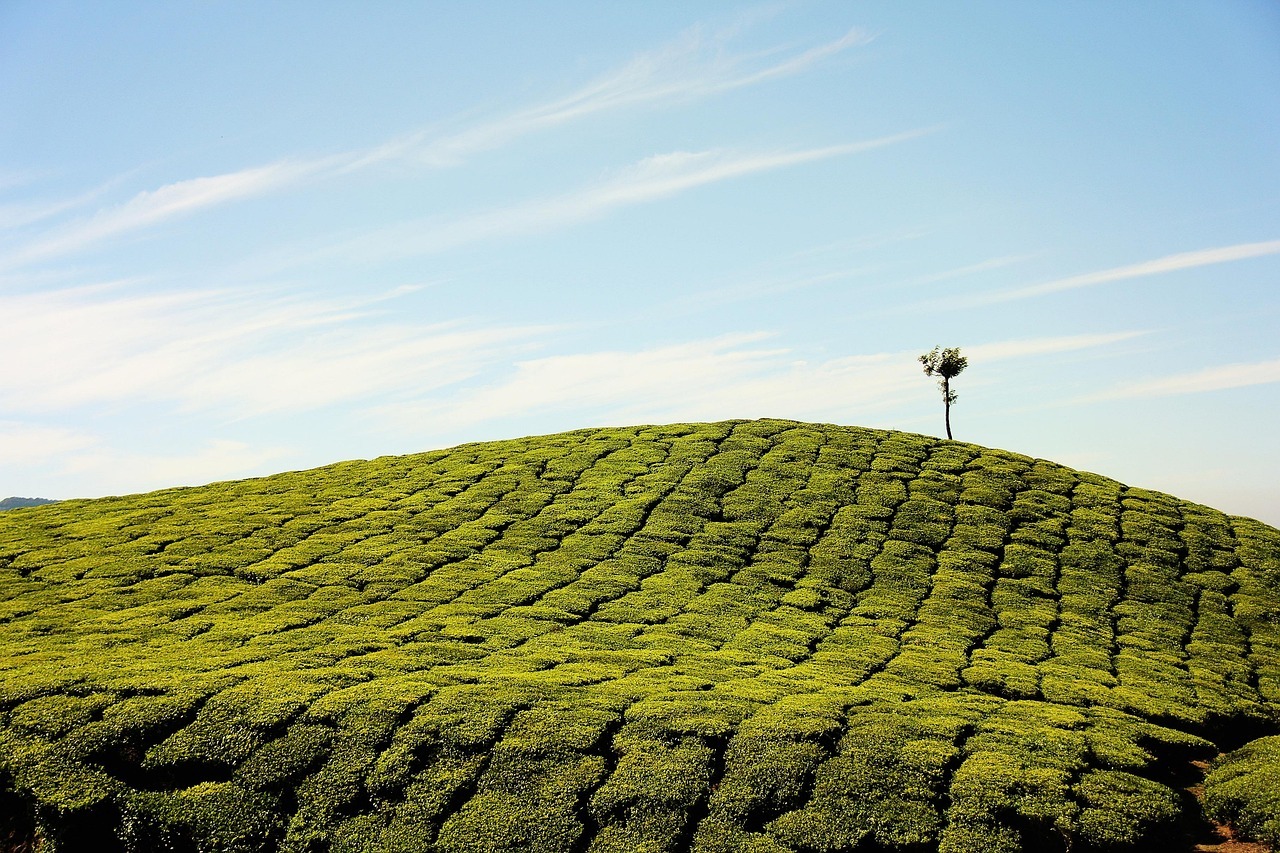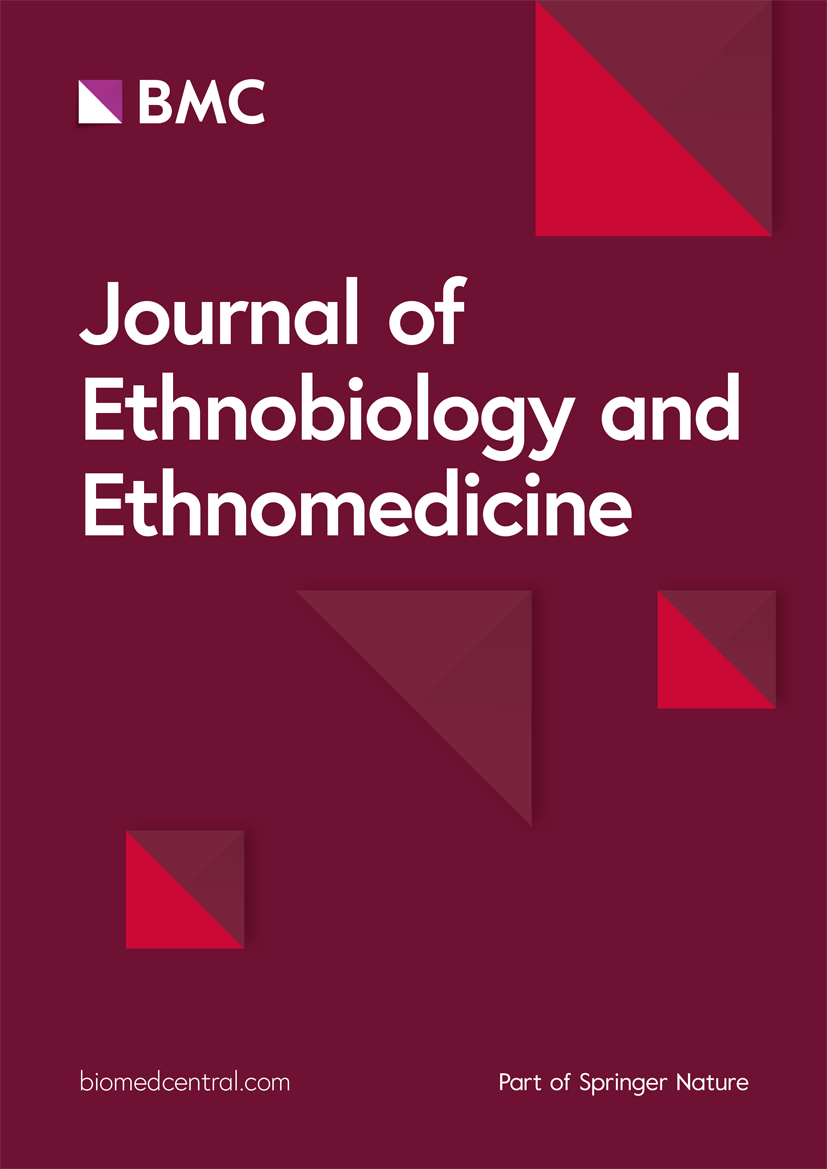Ethnobiology at a Crossroads: Forecasting Futures for Nature and Health
Published in Social Sciences and Ecology & Evolution

As the global community prepares to mark World Nature Conservation Day (and World Hepatitis Day too) on July 28, a forward-looking editorial by Andrea Pieroni, Mousaab Alrhmoun, and Naji Sulaiman offers a timely and critical reflection on the future of ethnobiology and ethnomedicine. Titled “Plural and Commoning? Forecasting Four Scenarios for Ethnobiology and Ethnomedicine by 2035”, the piece explores how local ecological knowledge systems—long central to both environmental stewardship and community health—may evolve amid accelerating global change. The editorial’s insights are particularly resonant on a day that celebrates both biodiversity and human health.
Four Scenarios for the Evolution of Ethnobiology
Indigenous Ecologies and Agroecology
In select regions of the Global South, local ecological knowledge will remain integral to domestic healthcare strategies, food sovereignty, and ecological resilience. Ethnobiologists are called to act as co-creators in transdisciplinary platforms, supporting grassroots revitalization efforts. However, these systems face mounting threats from climate change, land degradation, and youth outmigration.
Digital Documentation and Memory Ethnosciences
As local ecological knowledge becomes increasingly fragmented in post-traditional societies, ethnobiology may pivot toward digital archiving and the study of cultural memory. This scenario emphasizes the affective dimensions of knowledge loss and the emergence of “local ecological knowledge nostalgia” as a research focus.
Post-Traditional, Cosmopolitan Hybridities
Urban ethnobiology will expand through migrant-led practices, DIY herbalism, and digital wellness cultures. While these hybrid forms offer new avenues for engagement, they also raise concerns about epistemic dilution and the commodification of traditional knowledge.
Big Data and Molecular Techno-Ethnobiology
AI and omics technologies will enable large-scale analysis of ethnobotanical data, integrating LEK into pharmacological and nutraceutical R&D pipelines. This scenario highlights both the promise of innovation and the ethical challenges of data sovereignty, benefit-sharing, and digital bio-neocolonialism.
A Call for Reflexivity and Reconnection
The authors conclude with a call to regenerate embodied, experiential learning with nature—a foundational step toward revitalizing ethnobiology as a discipline that is not only scientifically rigorous but also socially and ecologically grounded.
Follow the Topic
-
Journal of Ethnobiology and Ethnomedicine

This journal publishes original research focusing on cultural perceptions of nature and of human and animal health. It invites research articles, reviews and commentaries concerning the investigations of the inextricable links between human societies and nature, food, and health.
Related Collections
With Collections, you can get published faster and increase your visibility.
Ethnobiology of the islands
This Collection examines the socio-ecological systems of "islands" and coastal areas worldwide, focusing on the relationship between humans and biota and even non-biotic components and the implications of these interactions over time and space. Cross-cultural analysis, indigenous perspectives, and the complex dynamics between the local knowledge of these "isles" (especially the most peripheral and marginalized ones) and the contiguous mainland are particularly welcome. Issues related to the effects of unsustainable tourism on local knowledge systems are also very appropriate.
The projection of the contributions should aim to foster the community-centered sustainable management of marine and coastal resources and envision new paths in environmental education and political ecology.
This Collection supports and amplifies research related to SDG 14, Life Below Water and SDG 15, Life on Land.
All submissions in this collection undergo the journal’s standard peer review process. Similarly, all manuscripts authored by a Guest Editor(s) will be handled by the Editor-in-Chief. As an open access publication, this journal levies an article processing fee (details here). We recognize that many key stakeholders may not have access to such resources and are committed to supporting participation in this issue wherever resources are a barrier. For more information about what support may be available, please visit OA funding and support, or email OAfundingpolicy@springernature.com or the Editor-in-Chief.
Publishing Model: Open Access
Deadline: Jul 03, 2026
Small-scale farming and ethnobiology – Bridging local knowledge, biodiversity, and cultural landscapes
The importance of deepening our understanding of small-scale farming and its intersections with ethnobiology and ethnoecology cannot be overstated. These fields illuminate not only traditional agricultural practices that have sustained communities for generations, but also contemporary locally adapted sustainable practices. Together, they underscore the vital role of local knowledge in preserving biodiversity and shaping cultural landscapes.
Recent research has highlighted the intricate relationships between local communities and their territories and ecosystems, showing how both traditional and locally adapted innovative farming methods can enhance biodiversity and promote ecological balance. These insights are essential for informing sustainable land management and ecosystem resilience.
Looking ahead, continued exploration in this area holds the potential to yield transformative insights. Integrating traditional knowledge with organic and agroecological practices—which may be ancient, innovative, or retro-innovative—can lead to more sustainable and resilient food and agriculture systems. This research is not only key to preserving cultural heritage but also to addressing urgent global challenges related to food security and environmental sustainability.
Topics of interest include, but are not limited to:
Local Knowledge & Sustainability
• Local Knowledge Systems in Agriculture
• Traditional Agricultural Practices and Sustainability
• Indigenous Knowledge and Climate Resilience
Biodiversity & Conservation
• Biodiversity Conservation in Small-Scale Farming
• Ethnobiological Approaches to Conservation
• Ethnoecological Perspectives on Land Use
Agroecology, Organic Farming & Cultural Landscapes
• Agroecological & Organic Practices and Transitions
• Innovation and Local Knowledge in Agroecological and Organic Systems
• Cultural Landscapes and Food Sovereignty.
This Collection supports and amplifies research related to SDG 2, Zero hunger, SDG 12, Responsible consumption and production, and SDG 15, Life on land.
All submissions in this collection undergo the journal’s standard peer review process. Similarly, all manuscripts authored by a Guest Editor(s) will be handled by the Editor-in-Chief. As an open access publication, this journal levies an article processing fee (details here). We recognize that many key stakeholders may not have access to such resources and are committed to supporting participation in this issue wherever resources are a barrier. For more information about what support may be available, please visit OA funding and support, or email OAfundingpolicy@springernature.com or the Editor-in-Chief.
Publishing Model: Open Access
Deadline: Jun 22, 2026






Please sign in or register for FREE
If you are a registered user on Research Communities by Springer Nature, please sign in